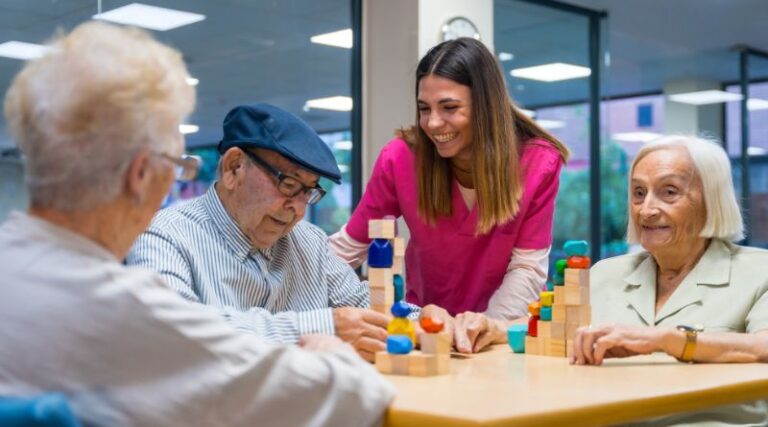Social activities are crucial for enhancing seniors’ quality of life in nursing homes and long-term care facilities. These activities go beyond mere entertainment; they provide opportunities for social interaction, cognitive stimulation, emotional support, and physical engagement. As the population ages, recognizing the importance of social activities in nursing homes becomes increasingly crucial for promoting overall well-being and maintaining a sense of purpose and connection among residents. In this article, we’ll explore the significance of social activities in nursing homes and how they enhance seniors’ quality of life.
Table of contents
Creating Meaningful Connections
One of the primary benefits of social activities in nursing homes, St. Petersburg, FL, is the opportunity for residents to create meaningful connections with their peers. Many seniors in long-term care facilities experience feelings of loneliness and isolation, mainly if they are separated from their families or have limited social interactions. Social activities provide a platform for residents to engage in conversations, share experiences, and develop friendships with others in similar life stages. These connections foster a sense of belonging and companionship, reducing loneliness and enhancing overall emotional well-being.
Stimulating Cognitive Function
Social activities also play a crucial role in stimulating cognitive function among seniors. Engaging in mentally stimulating activities such as games, puzzles, and discussions helps keep the mind sharp and active. Maintaining mental stimulation is crucial for seniors as they age, as it can help postpone the onset of cognitive decline and improve overall brain health. Social activities that encourage problem-solving, memory recall, and critical thinking provide valuable mental benefits while promoting social interaction and engagement among residents.
Promoting Physical Well-being
In addition to mental stimulation, social activities in nursing homes also promote physical well-being among seniors. Many social activities involve physical movement and exercise, essential for maintaining strength, flexibility, and mobility as we age. Activities such as dancing, yoga, chair exercises, and walking groups allow residents to stay active and maintain their physical health. Regular physical activity improves physical fitness, enhances mood, reduces stress, and contributes to overall well-being.
Fostering Emotional Support
Nursing homes can sometimes be challenging environments for seniors, mainly if they are dealing with health issues or adjusting to life in a long-term care facility. Social activities provide residents with emotional support and a sense of community, helping them navigate the ups and downs of aging with greater resilience and positivity. Group activities such as support groups, therapy sessions, and discussion circles offer opportunities for residents to express their feelings, share experiences, and receive emotional support from their peers and staff members. This sense of emotional connection and support contributes to overall emotional well-being and helps residents cope with challenges.
Encouraging Creativity and Self-Expression
Social activities in nursing homes also encourage creativity and self-expression among seniors. Many activities involve artistic pursuits such as painting, crafting, music, and writing, allowing residents to explore their creative talents and express themselves meaningfully. Engaging in creative activities fosters a sense of accomplishment and fulfillment, boosting self-esteem and confidence among residents. Additionally, creative expression has therapeutic benefits, promoting relaxation, stress reduction, and emotional healing.
Enhancing Overall Quality of Life
Ultimately, the importance of social activities in nursing homes lies in enhancing seniors’ overall quality of life. Providing opportunities for social interaction, cognitive stimulation, physical activity, emotional support, and creative expression contribute to a fulfilling and meaningful life in later years. Socially engaged seniors are happier, healthier, and more resilient, enjoying a higher quality of life despite the challenges of aging and life in a long-term care facility.
In conclusion, social activities are vital for enhancing the quality of life for seniors residing in nursing homes and long-term care facilities. These activities provide opportunities for residents to create meaningful connections, stimulate cognitive function, promote physical well-being, foster emotional support, encourage creativity, and ultimately enhance overall well-being. By recognizing the importance of social activities and prioritizing them in care plans, nursing homes can create vibrant and supportive communities where seniors can thrive and age with dignity, purpose, and fulfillment.







